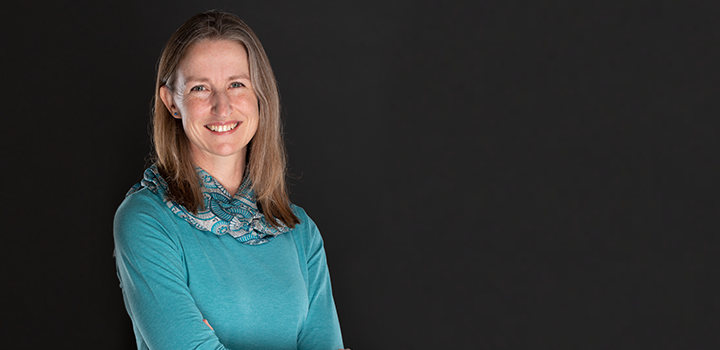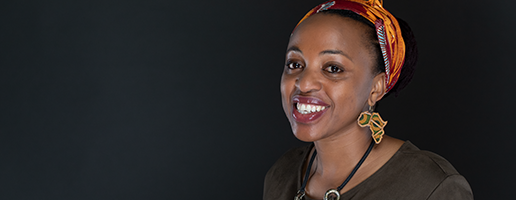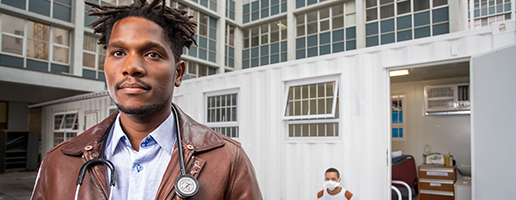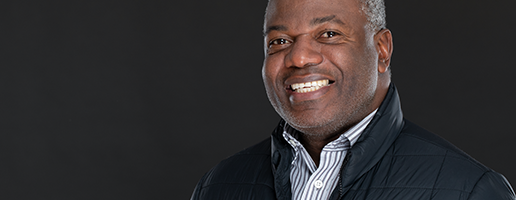Measuring the rural health impact of a game-changing mobile app

Dr Natasha Blanckenberg is using her Discovery Foundation Rural Individual Fellowship Award to study the impact of the Vula app, which enables faster, more efficient specialist advice and referrals for patients in remote rural healthcare facilities.
Dealing with a complicated childbirth or a patient with an aggressive cancer without the input of or referral to an appropriate specialist can easily cost lives. Inevitably it saps doctor morale. Which is why rural medicine family physician, Dr Natasha Blanckenberg, has chosen to study the impact of the soon-to-be ubiquitous Vula cellphone application. This app enables faster, more efficient specialist advice and referrals for patients in remote rural healthcare facilities.
She has experienced the frustration and loneliness of a rural physician, especially when there’s no specialist or manager to help carry the load. So, it is no coincidence that she will be among the first to complete the new MBA in Healthcare Leadership at the University of Stellenbosch. Her associated research aims to quantify the impact of a fellow rural trailblazer’s work.
Vula mobile app bringing specialist care to remote areas
Ophthalmologist Dr William Mapham developed the Vula mobile app to help with rural diagnoses, specialist advice and referrals, and to provide priceless remote, case-by-case learning. The system proved so effective that today, 20 specialties use it with the number growing. In 2018, Vula won a tender from the Western Cape Department of Health to use the app in public hospitals, although it is already in unofficial use nationwide. The referral device has led to a decrease of up to 25% in the need to visit a specialist in several rural areas. Specialists from different fields donated their time to work with the Vula team to design functionality for their own disciplines. This enabled the app to scale up and include referral forms for any number of specialties.
Cutting down referrals
Dr Blanckenberg wants to study the correlation between the number of Vula app referrals and visits to specialists in referral hospitals and quantify the decrease in waiting times.
“We should be able to bring about a significant drop in the number of patients who need to travel to referral hospitals to benefit from a specialist opinion,” she says. Her most recent three-year stint as a Medical Officer at Northern Cape Community Health Centres in Fraserburgh and Sutherland, where a patient referral can sometimes mean a 1 600 km round trip, proved instructive.
“Many rural patients are illiterate, terrified and feel lost in big hospitals, causing some to refuse to go. If you can avoid sending them by using this app, that’s great,” she says, adding that childcare issues can often result in women not making the trip.
The Vula app stores the call roster input of each department in a network of secondary and tertiary hospitals, enabling instant access to the specialist on call. Dr Blanckenberg’s study will focus on the Western Cape, where there has been dramatic uptake owing to the newly won Vula tender, rendering her data collection easier.
She lives with her engineer husband at the South African Astronomical Observatory in Sutherland. Until 2018, she provided patient care and 24/7 emergency support and mentored nurses at two remote community health centres in the area, where she was the only doctor for 130 km.
Game-changing approach
Dr Blanckenberg followed a similar rural medicine path to Dr Mapham, being forced to “make a plan” when faced with shortages of staff, essential equipment or supplies. This prompted her to collaborate with corporate donors to obtain medical equipment and supplies worth R400 000 for the remote Northern Cape community healthcare centres − and to organise alternative emergency transfers of patients when local receiving facilities were crippled by system failures. Like Dr Mapham, she is a game-changer.
Dr Blanckenberg chose to study for the new MBA in Healthcare Leadership after over a decade of rural work. She completed the McCord Hospital rural vocational training programme after a stint at Mseleni Hospital. Years of district hospital work followed in KwaZulu-Natal and Hermanus, where she completed her family medicine training through Stellenbosch University. She then worked at Nkhoma Hospital in rural Malawi. As a Medical Services Manager at Hermanus Hospital for three years, she experienced hands-on healthcare leadership after years of being “in the trenches”.
Good healthcare leadership is vital
“If you don’t have good managers you can be the best healthcare worker in the world but you’re completely hamstrung,” she says. Her decade of rural experience has sparked a passion to provide excellent quality, compassionate healthcare to those least able to afford it. In her words, to “affirm their human dignity and worth”.
“I love finding creative ways to do more with less and feel most at home working in rural low-resourced settings, especially in the context of the district health system. Past experiences have highlighted to me that even the most motivated and skilled doctors and nurses can be rendered ineffective, even crushed, by a badly run health system.”
The Discovery Foundation Rural Fellowship Award will enable her to complete her research and move more quickly towards her next goal of becoming a district healthcare manager. With 0.3 doctors for every 1 000 people, and 0.10 medical specialists for every 1 000 people in the public sector in 2018, the value of this duo’s work becomes inestimable.
About the Discovery Foundation
Each year, the Discovery Foundation gives five different awards to outstanding individual and institutional awardees in the public healthcare sector.
The Discovery Foundation is an independent trust with a clear focus to strengthen the healthcare system by making sure that more people have access to specialised healthcare services.
Since 2006, the Discovery Foundation has invested more than R230 million in training and support for more than 400 medical specialists and institutions. The grants support academic research and clinical science, sub-specialist training, rural medicine as well as programmes to develop public healthcare resources. For 2019, Discovery Foundation awarded 42 grants to medical specialists working in South Africa’s healthcare sector to the value of R27 million.
Learn more and apply for the 2020 Discovery Foundation Awards.
Related articles

Taking small strategic steps to move a mountain
Dr Tumiso Malatji has received a Discovery Foundation Rural Institutional Award to fund a project that will evaluate and improve the management of cardiovascular diseases and diabetes at primary healthcare level at selected clinics in Limpopo.

Overcoming huge odds to help others fight TB
While believing that education is one of the key strategies in addressing poverty, disease and crime in South Africa, specialist physician and pulmonologist Dr Donald Simon says experience has taught him that knowledge is not necessarily power.

When a big brother makes all the difference
Dr Nyaweleni Tshifularo’s 2019 Discovery Foundation Distinguished Visitor Award allows him to help improve the knowledge and skills of all clinicians in both general surgery and paediatrics at the Polokwane Mankweng Hospital Complex.